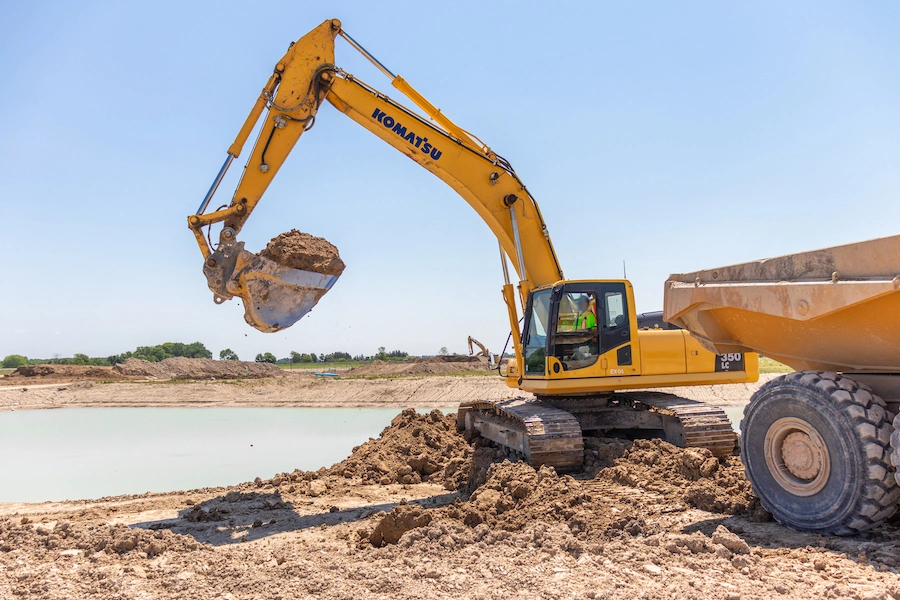Excavator Price in Nigeria: What to Expect When Buying Heavy Machinery
Excavators are essential heavy machinery used in construction, mining, and other industries that require large-scale earth-moving operations. In Nigeria, the demand for excavators is on the rise due to the country’s expanding infrastructure and construction projects. However, the cost of acquiring an excavator can vary significantly depending on several factors. This article explores the current excavator prices in Nigeria, what influences these costs, and tips for making a well-informed purchase.
Factors Influencing Excavator Prices in Nigeria
Several factors contribute to the variation in excavator prices across Nigeria:
1. Brand and Model
- Global Brands: Excavators from well-known global brands such as Caterpillar, Komatsu, and Volvo tend to be more expensive due to their reputation for durability, performance, and after-sales support. For instance, a Caterpillar 320D2 excavator might cost more than a similar model from a lesser-known brand.
- Model Year: Newer models often come with advanced features, better fuel efficiency, and higher resale value, but they are priced higher than older models.
2. Condition: New vs. Used
- New Excavators: Purchasing a brand-new excavator is ideal for long-term projects and when reliability is a top priority. However, new excavators are significantly more expensive, often ranging from ₦50 million to ₦150 million or more, depending on the brand and model.
- Used Excavators: For those on a budget, used excavators are a viable option. The price of a used excavator in Nigeria can vary widely based on its age, condition, and hours of operation. Prices for used excavators typically range from ₦15 million to ₦80 million.
3. Size and Capacity
- Mini Excavators: These are smaller machines suitable for light-duty work in urban construction sites or residential projects. They are generally more affordable, with prices ranging from ₦10 million to ₦40 million.
- Medium to Large Excavators: These are more powerful machines used for heavy-duty tasks such as mining and large-scale construction. Their prices can range from ₦50 million to ₦200 million or more.
4. Importation Costs
- Customs Duties and Taxes: Importing excavators into Nigeria involves paying customs duties, VAT, and other taxes, which can significantly increase the overall cost. These importation costs vary depending on the machine’s country of origin and the Nigerian government’s current tax policies.
- Shipping and Logistics: The cost of transporting the excavator from the port to its final destination also adds to the total price. Depending on the distance and logistics involved, this could range from a few hundred thousand to several million naira.
Current Price Range of Excavators in Nigeria
Based on the factors mentioned above, here is a general price range for different types of excavators in Nigeria:
- Mini Excavators: ₦10 million – ₦40 million
- Medium-Sized Excavators: ₦40 million – ₦100 million
- Large Excavators: ₦100 million – ₦200 million+
These prices can vary depending on the dealer, location, and additional features or attachments included with the machine.
Tips for Purchasing an Excavator in Nigeria
When buying an excavator in Nigeria, consider the following tips to ensure you make a smart investment:
1. Research and Compare
- Take the time to compare prices from different dealers and check for any ongoing promotions or discounts. Visiting multiple dealerships or checking online platforms can give you a better idea of the market rate.
2. Inspect Used Equipment Thoroughly
- If buying a used excavator, ensure that it is thoroughly inspected by a professional mechanic. Check the machine’s service history, hours of operation, and any signs of wear and tear that could affect its performance.
3. Consider After-Sales Support
- Choose a brand or dealer that offers reliable after-sales support, including availability of spare parts and maintenance services. This can save you time and money in the long run.
4. Factor in Additional Costs
- Remember to account for import duties, taxes, shipping, and logistics when budgeting for your excavator. These costs can significantly impact your final purchase price.
Conclusion
The price of excavators in Nigeria can vary widely depending on factors such as brand, model, condition, and size. Whether you’re buying new or used, it’s essential to do thorough research and consider all associated costs to ensure you’re making a sound investment. At Wigmore Trading, we offer a range of high-quality excavators and other heavy machinery to meet your project needs.
Get in Touch:
Looking to purchase an excavator in Nigeria? Contact Wigmore Trading today to explore our selection of excavators and get expert advice on finding the right machine for your project. Visit our website, email, or call us for more information.








Comments are closed.